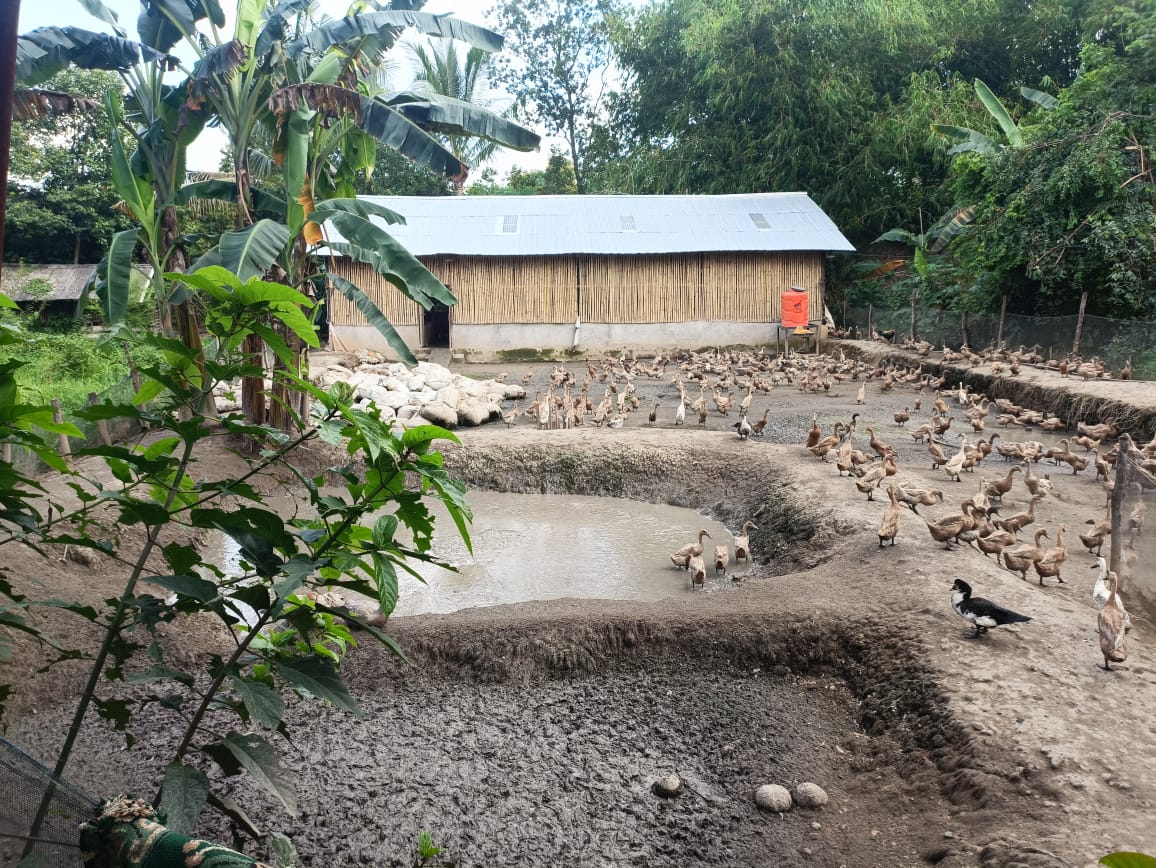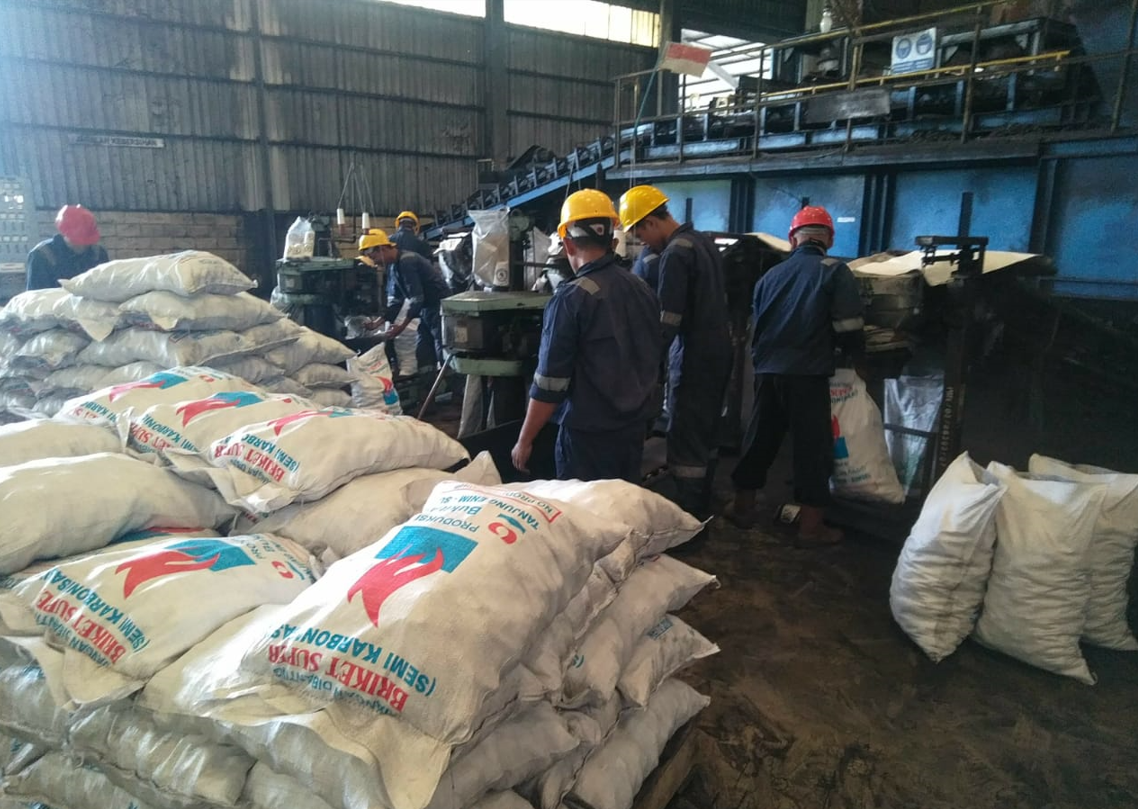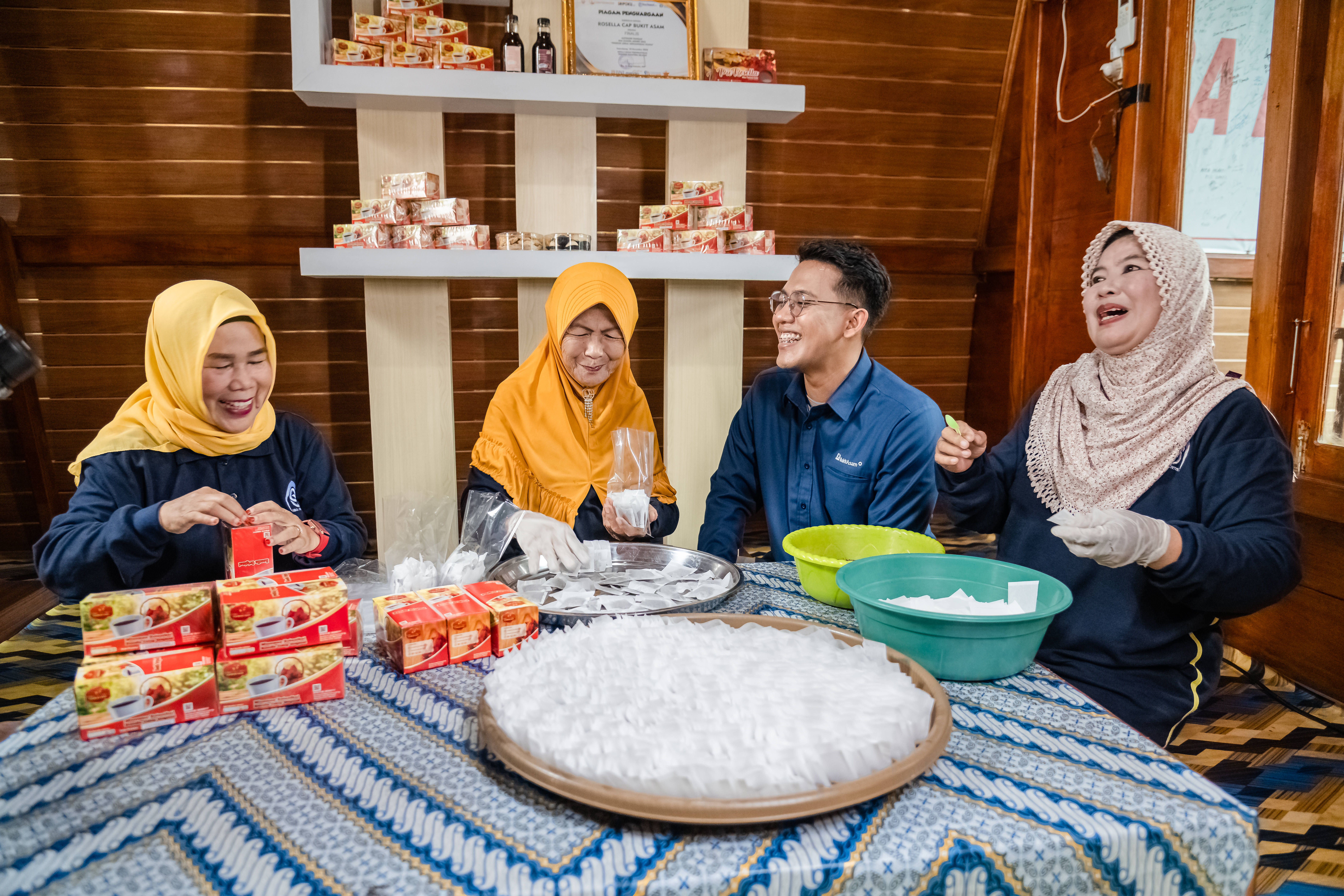 Muara Enim, July 2, 2025 — PT Bukit Asam Tbk (PTBA) once again showed its commitment to encouraging economic transformation of the communitiy around its operational area (Ring 1). This time, Bukit Asam through the Sustainability Division initiated an egg-laying duck farming program in Tegal Rejo Village, Lawang Kidul District, Muara Enim Regency, South Sumatra. This program is a continuation of post-mining community empowerment efforts, after previously successfully developing ex-PETI quail farms.
Muara Enim, July 2, 2025 — PT Bukit Asam Tbk (PTBA) once again showed its commitment to encouraging economic transformation of the communitiy around its operational area (Ring 1). This time, Bukit Asam through the Sustainability Division initiated an egg-laying duck farming program in Tegal Rejo Village, Lawang Kidul District, Muara Enim Regency, South Sumatra. This program is a continuation of post-mining community empowerment efforts, after previously successfully developing ex-PETI quail farms.By collaborating with the Inisiatif Zakat Indonesia (IZI), Bukit Asam brought in animal husbandry experts to provide direct technical assistance in the field. The evaluation included cage arrangement, lighting, air circulation, and the ideal livestock ratio to increase productivity and reduce livestock mortality. This program was carried out in stages and participatory, directly involving local communities as the main actors of change.
"Through this approach, Bukit Asam confirms that economic independence of Ring 1 residents can be achieved without having to work in the mining sector. The potential profit from layer duck farming is promising. By managing 300 to 500 birds, a farmer can earn more than Rp5 million per month, exceeding the minimum wage limit," said Ajis Purnomo, Sustainable Community Development Section Head of PTBA.
Chairman of Rimba Farm Tegal Rejo, Hendri, who was also a beneficiary of this program, expressed his gratitude and optimism for the support provided by Bukit Asam. According to him, this assistance was not just a technical knowledge transfer, but also a tangible form of the company’s presence that cares and invests in the future of the local community. "This initiative is not just business assistance, but a real form of the company's presence in creating a more empowered and sustainable future for the surrounding community," said Hendri enthusiastically.
More than just creating new jobs, this laying duck farming program is also one of PTBA's contributions in supporting the achievement of the Sustainable Development Goals (SDGs), especially point 1 (No Poverty), point 8 (Decent Work and Economic Growth), and point 12 (Responsible Consumption and Production). By maximizing the potential of local resources and strengthening community capacity, PTBA hopes that this program can become an economic empowerment model that can be replicated in other areas with similar conditions.
As a company that prioritizes sustainability principles in every line of operations, PTBA continues to be committed to presenting initiatives that not only have an impact on improving people's lives, but also on long-term economic development that is inclusive, fair, and environmentally friendly.







